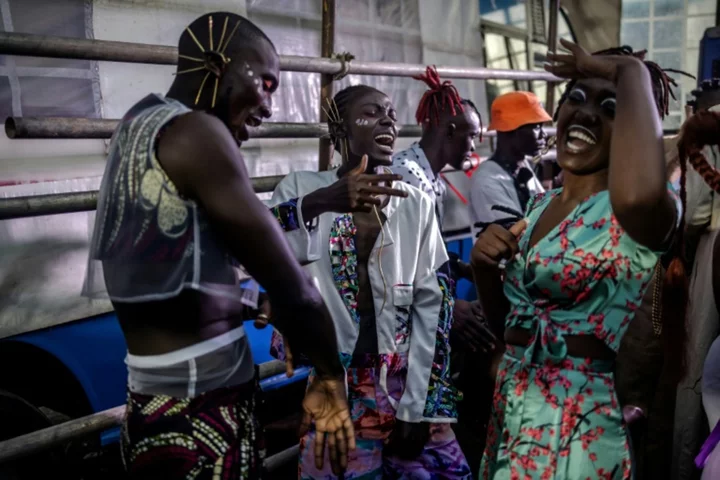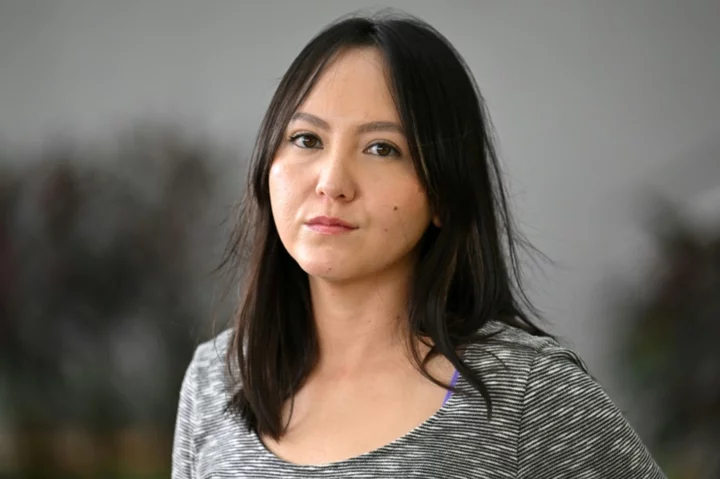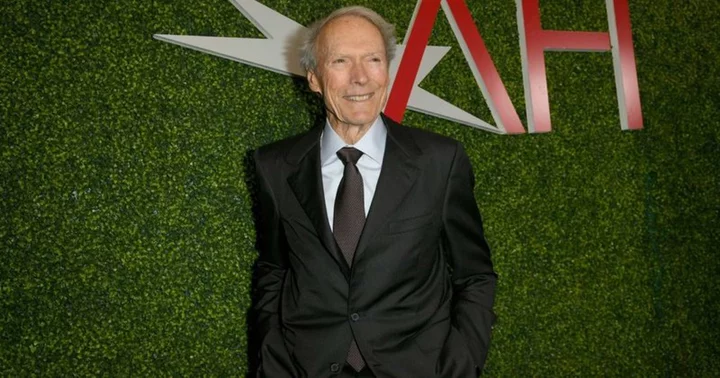His creations are made in Kibera, the largest urban slum in Kenya, but have attracted the attention of global stars such as Beyonce and Bruno Mars and featured in Vogue magazine.
For Avido, his designs have a dual purpose: both to show to the world what can come from the impoverished Nairobi neighbourhood where he was born and raised, and to make it a better place.
Last year, the 27-year-old designer launched Kibera Fashion Week and the second edition was staged on Saturday in the heart of the sprawling slum.
Avido, whose real name is David Ochieng, drew inspiration from his journey to create one of his mottos: "Great things can come from places least expected."
The eldest of four children raised by a single mother in Kibera, Avido had never thought about pursuing a career in fashion.
"Looking for an alibi to keep me alive is what pushed me into fashion," he said in his deep voice.
He wanted to escape life on the street, saying 60-70 percent of his childhood friends had lost their lives through crime or drugs.
Forced to leave school at the age of 11 because of a lack of money, he tried to stay out of trouble -- first by playing football and later working on construction sites before he joined a dance troupe.
He then began designing outfits for the dancers.
"I started spending time with the tailors that were sewing the clothes that we were dancing with," he said. "I learned sewing even without knowing."
- Basket hat, bomber jackets and kimonos -
He went on to train as a fashion designer.
"He was really motivated... a go-getter," recalled Japheth Okoth, a charity employee who helped Avido get his first sewing machine.
"The moment he got that machine, he started designing clothes, making shirts," he said.
One of his garments brought him to the attention of Jamaican singer Don Carlos, the founder of reggae group Black Uhuru who was visiting Kibera on the sidelines of a concert in Kenya in 2017.
Avido offered him a shirt, and the encounter convinced him to devote his life to fashion.
With his "Lookslike Avido" label, he developed a colourful, gender-neutral style, mixing a variety of patterns and textures, notably ankara, the vibrant African wax fabric, and the velvet found on his kimonos and bomber jackets.
His inspiration comes not from the catwalks of New York, Paris or Milan, but from the streets of Kibera.
"Here in the street you get to have everything: when you speak about avant-garde, official, everything is in the street," he said.
One of his signature products, however, comes from the Kenyan countryside: a conical basket woven by his grandmother, which he turned upside down and wore as a hat one rainy day.
His style has caught the eye of Bruno Mars, rapper Ty Dolla Sign, reggae singer Chronixx, Coldplay frontman Chris Martin and Beyonce, who commissioned him and other African designers for her "Black is King" project.
His creations were also featured during Berlin Fashion Week in 2019.
- 'No point growing alone' -
But Avido keeps both feet firmly in Kibera, where all his clothes are made.
When Vogue Italia contacted him for an interview and photoshoot, he insisted that the models they used were young women from Kibera and that they were paid.
Traumatised by his childhood days when he would have to go to class in ragged uniforms, Avido -- through his eponymous foundation -- also makes uniforms for Kibera pupils, pays school fees for some and teaches young mothers and deaf women how to sew.
During the Covid-19 pandemic, he also produced thousands of masks to be distributed free of charge.
"Fashion is not just about making clothes, but it's a platform to be able to make our community a better place," he said.
"When it comes to projects, I try to think of the impact that it is going to have and if it is not going to have an impact around, I normally am not going into it," he added.
Despite his global renown, he has no intention of leaving his native slum.
"I don't see the point of growing alone. I could grow, leave, be part of the Paris Fashion Week. But I'd rather have a fashion week here and inspire people here," he said.
sva/txw/acc/gw









